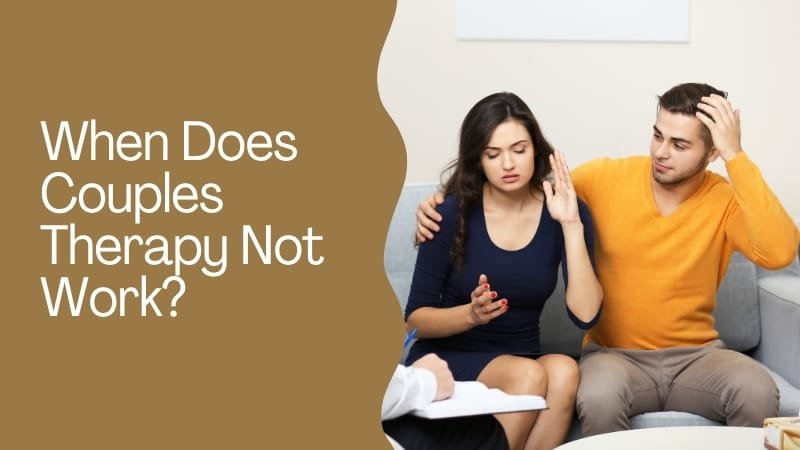Couples therapy can be a powerful tool for healing, but it’s not always successful. It may not work when the underlying issues are too severe, when one or both partners are unwilling to fully participate, or when the goals of therapy are unclear or mismatched.
Common Reasons Couples Therapy May Fail:
-
Lack of Commitment to the Process
Therapy requires time, effort, and emotional vulnerability. If one or both partners are inconsistent, resistant, or not fully invested, progress may stall. -
Unwillingness to Take Responsibility
When partners focus solely on blaming each other instead of acknowledging their own role in the relationship dynamics, therapy becomes unproductive. -
Hidden Agendas or Unclear Intentions
Sometimes one partner enters therapy already planning to end the relationship, or to use therapy as a way to prove the other person is “at fault.” This undermines the process. -
Emotional Disconnection or Resentment
If the emotional distance or unresolved resentment is too great, it may be difficult to rebuild trust and intimacy, especially if the effort is one-sided. -
Abuse or Manipulation
In cases involving emotional, verbal, or physical abuse, traditional couples therapy may not be appropriate and could even be harmful. Safety must come first. -
Severe Mental Health or Addiction Issues
When one or both partners are struggling with untreated mental illness or substance abuse, individual treatment may be needed before couples therapy can be effective. -
Incompatible Therapy Approach or Therapist Mismatch
Not every therapist or therapeutic style works for every couple. If there’s no connection or progress, changing therapists may be necessary. -
Waiting Too Long to Seek Help
The longer problems go unresolved, the more difficult they can be to repair. Many couples seek therapy as a last resort, when emotional damage may already be too deep.
Important Insight:
Even if couples therapy doesn’t “save” the relationship, it can still provide clarity, improve communication, and support a healthier separation if needed. Growth, healing, and self-awareness are valuable outcomes — even if the couple decides to part ways.
Takeaway: Couples therapy works best when both partners are honest, open, and committed to growth. Early intervention, the right therapist, and a shared willingness to change can make a significant difference.


